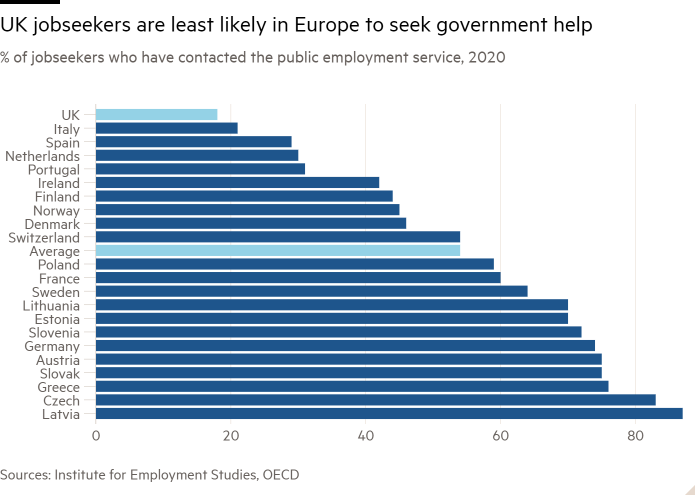Unlock the Editor’s Digest for free
Roula Khalaf, Editor of the FT, selects her favourite stories in this weekly newsletter.
UK jobcentres will spend less time policing the benefits system and more time helping people to find work, under government reforms aimed at raising the employment rate to the highest in the G7.
Alison McGovern, employment minister, told the Financial Times that a white paper due later in the autumn would set out “big changes” to a welfare system that left too many people “on the scrapheap”.
“The first thing has to be cultural change,” she said, calling for a return to the founding principles of the welfare state.
“[William] Beveridge knew that for social security to work you need a well-functioning health system and an approach for full employment. We’ve lost that wider view of the economy,” she added, referring to the economist who inspired Labour’s postwar reforms.
McGovern was speaking ahead of the launch of an independent report setting out proposals to turn the Jobcentre Plus network, the job search and benefits service, into a universal employment support resource open to all, including people out of work with health conditions — not only to benefits claimants.

The report will inform Labour’s ambition to raise the UK’s employment rate to 80 per cent, higher than it has been in more than 160 years, and surpassed by only a handful of leading economies.
The target is central to the government’s economic strategy because official data suggests the UK is the only rich country whose employment rate — estimated at 74.5 per cent — has not yet recovered its pre-pandemic level.
Data collection problems mean this figure is questionable, but government figures also show growing numbers of people are claiming incapacity benefits on the grounds that ill health or disability prevents them from working.

The report from the Commission on the Future of Employment Support says that much of the problem is due to the “draconian” requirements imposed on jobless benefits claimants, who are expected to spend 35 hours a week looking for work, and face sanctions if they fail to measure up.
The commission was led by the Institute for Employment Studies and its membership includes recruitment and union voices, as well as think-tanks and charities.
Tony Wilson, director of the IES, said there was “no evidence” to support the “damaging” 35-hour rule, which forced people to constantly justify their actions, tied up advisers and pushed people to claim health-related benefits with fewer requirements.
“People outside the labour force don’t trust jobcentres,” he said, arguing that scrapping the requirement for those with health conditions and young children, and scaling it back for others, could free up thousands of advisers to spend their time helping people find a better job.
Jobseekers in the UK are less likely than any others in Europe to use public support services to find work, partly because jobcentres are not open to the public but only to benefit claimants.
“It is the most unloved public service. That has to change,” McGovern said. She acknowledged that scaling back the sanctions regime and investing in new support services would carry upfront costs for taxpayers.
The commission estimated its proposals would cost an additional £150mn a year over the course of the parliament, while yielding much bigger benefits if they led more people to seek support and find better work.
McGovern argued that despite a “dreadful” fiscal situation, the investment could be justified. “Look at the cost of what we’re doing now . . . I find it difficult to believe we can’t do better,” she said.











